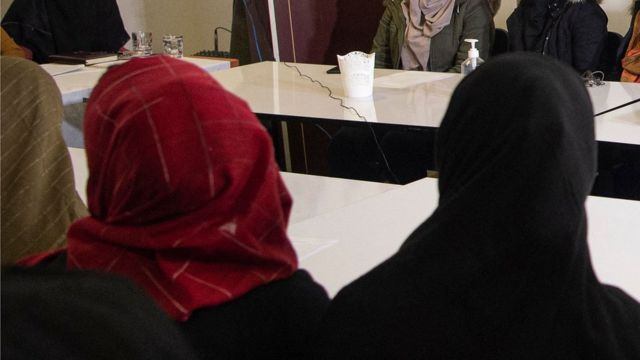Some teachers and employees of non-governmental organizations (NGOs) siad that women will face financial difficulties as a result of the suspension of work and education.
They asked the Islamic Emirate to reconsider this decision.
Sima Mohammadi, who has worked for a private organization for 20 years, said she is the sole breadwinner for her family of seven members and that their financial situation will deteriorate if she is unable to find work.
“If a mother has a job and is financially independent, I believe that her children will not beg on the street. This is not the time for a child to do labor,” Sima said.
After the suspension of females’ allowance to universities, Maria, a teacher, is worried about the future of women.
“This saddens me since all the Afghan women, who currently account for 50% of Afghan society, will be illiterate in the future. Second, I don’t know how to survive and feed our families,” Maria said.
Meanwhile, some women’s rights activists urged the Islamic Emirate provide women the chance to work.
“Women in Afghanistan should work with men for the improvement of Afghanistan’s affairs” said Farah Mustafawi, a women’s rights activist.
“I ask the Islamic Emirate is to please provide the work opportunities for women,” said Maryam Roish, a women’s rights activist.
According to some analysts, banning women from working will lead to a rise in family poverty.
“It is one of the most surprising, alarming, and astonishing movements against women that take place within a month,” said Sayed Masoud, an analyst in economic affairs.
“This would lead to foreign organizations closing their offices in Afghanistan, which will cause severe damage to the economy of Afghanistan,” said Darya Khan, ax analyst.
The Ministry of Economy issued a letter last week, asking all domestic and international NGOs to stop employing female staff members. Any organization that does not comply will having its license cancelled.













